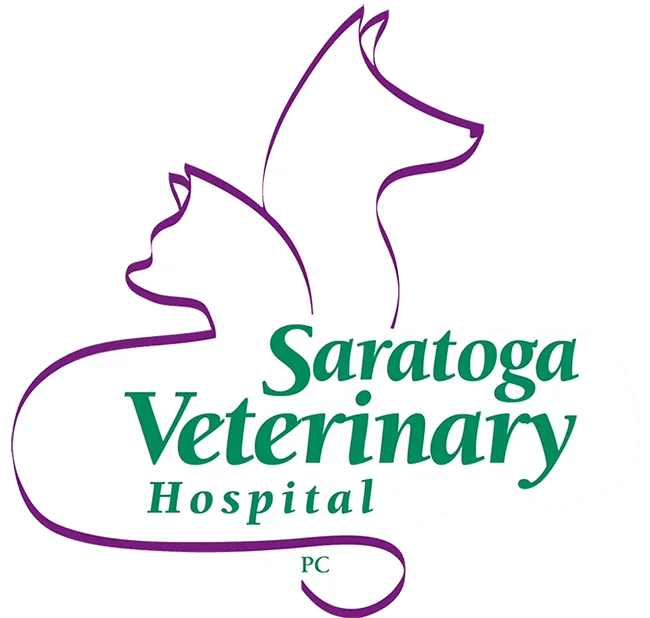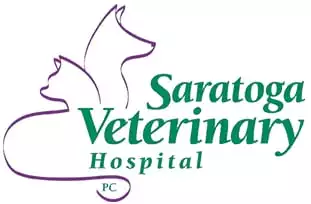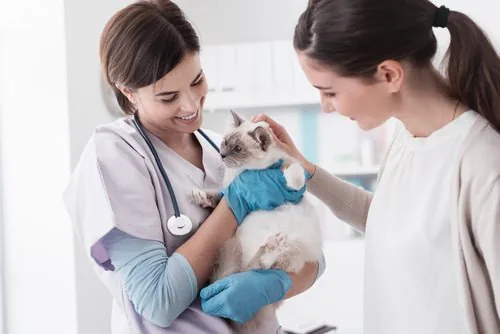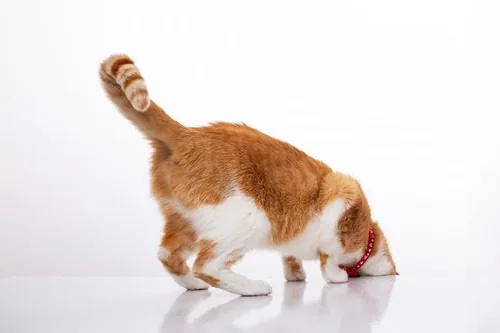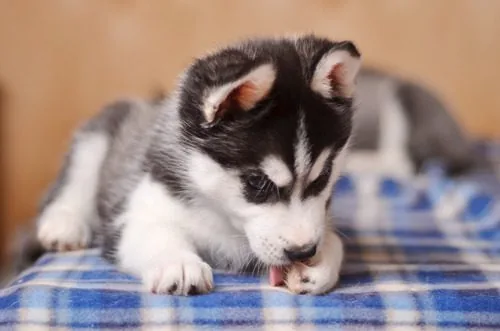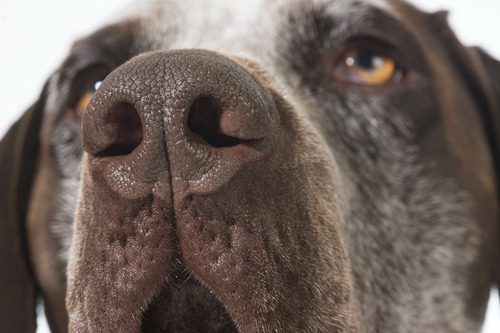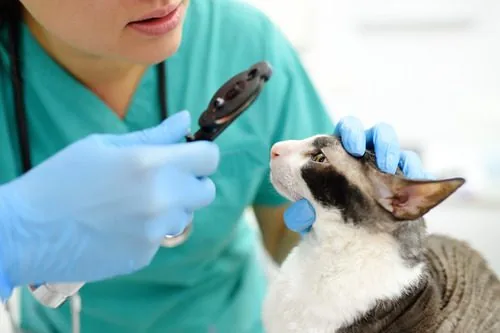How to Care for a Bearded Dragon in Wilton, NY
Our animal hospital sees all kinds of exotic pets, including bearded dragons, and their care is much different from that of a typical pet. At our Wilton, NY, animal hospital, we want to provide you with the basic knowledge of the various areas of care for your bearded dragon.
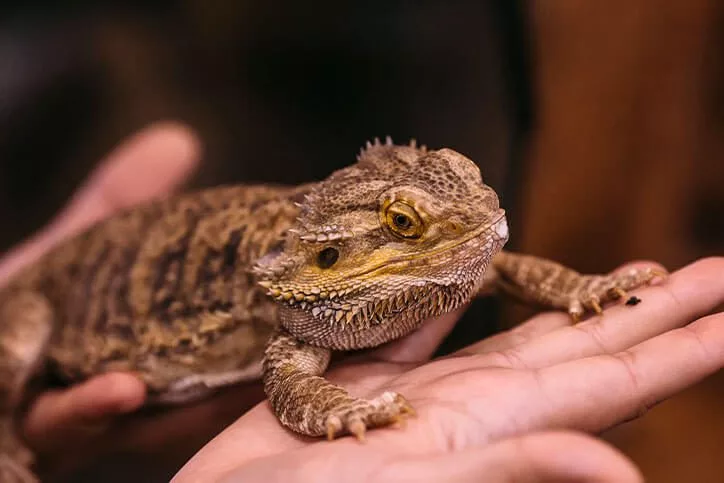
Requirements for Bearded Dragon Care
There are several essential aspects of caring for your bearded dragon that we will discuss below. These important areas include habitat/enclosure, bedding, climate/temperature, feeding, hydration, grooming, and handling.
A Spacious Enclosure
Bearded dragons can grow up to 15-20 inches in length and can be kept comfortably in a 75-to-120-gallon aquarium with a screened top or an enclosure that measures at least 48 inches long, 24 inches wide, and 18 inches high. These lizards grow quickly, so a larger enclosure is best, especially if housing multiple dragons in one.
Ensure that there is proper ventilation, and that the enclosure is away from any windows, as sunlight filtered through a window poses a danger of overheating. The enclosure should also include a rock for basking under a heat lamp and a shelter for privacy, and possibly a branch to climb or plants such as aloe, palms, and cycads.
Proper Bedding
The bottom of the enclosure should be covered with something safe and easy to clean such as newspaper or indoor/outdoor carpet that is free of any loose threads. Do not use bedding made from sand, wood chips, or gravel, as the dragon may accidentally eat it.
Any bedding you choose should be cleaned and changed as needed or once every week. Many household cleaners are toxic to bearded dragons, but bleach chlorine diluted with water is recommended to use. Make sure all surfaces of the enclosure have been rinsed and dried before your bearded dragon re-enters.
A Safe, Comfortable Temperature
It is best suited for the bearded dragon to have a spot for basking under a heat lamp of about 88 to 95 degrees Fahrenheit. At night the temperature should be about 70-75 degrees Fahrenheit to maintain maximum comfort. All heating devices and temperatures of the enclosure should be closely monitored to avoid harm to the bearded dragon.
Suitable Lighting
Ultraviolet B radiation is essential for the proper growth and maintenance of bearded dragons. While the best source of UVB is the sun, a fluorescent bulb with no less than 5% UVB can be used as a heating lamp for the basking site. This will need to be changed every 3-6 months, as the UVB can fade from the bulb, despite still emitting light.
A Balanced Diet
Adult bearded dragons are omnivores and will consume what is given to them with enthusiasm, which is why it is important to know the best diet to feed them. The ideal diet requires fruits and vegetables or occasional salads with various plants and insects.
The size of the feeder insect should coincide with the size of the bearded dragon: small prey insects to juvenile bearded dragons and larger insects to adult bearded dragons. Larger adult dragons can also be fed baby mice as an occasional treat. All food should be given to dragons in some sort of dish to prevent accidental ingestion of cage substrate.
Hydration
Though these creatures originate from a semi-desert region, it is recommended that bearded dragons be misted with a water spray bottle. This is especially true of younger bearded dragons. They will lick the water off various surfaces of the enclosure until they are satisfied. However, it is important not to overdo it, as too much water may affect the humidity of the enclosure.
Vitamin Supplements
Bearded dragons require calcium and vitamin supplements to maintain a good and healthy diet. Juvenile bearded dragons require calcium supplementation three times a week, along with a multivitamin once a month, which can be added to any salads they consume.
Adult dragons require a calcium supplement once a week and a multivitamin supplement once a month, which can be provided by dusting insects with a calcium powder before feeding. This supplement can also be provided through the insects fed to the bearded dragon, by supplementing the feeder insects through a process known as gut-loading.
Grooming and Handling
Overall, bearded dragons are docile creatures and usually will react well to routine handling. Over time, dragons seem to become more relaxed with regular interaction, though it is recommended to wear light gloves and long sleeves to avoid mild scratches when handling the reptiles and cleaning the enclosure.
The bearded dragon’s toenails are needle-sharp and should be regularly trimmed. In addition, because all reptiles can be infected with Salmonella bacteria, cleanliness of the enclosure and regular hygiene for your bearded dragon are a key part of their care.
Still Have Questions About Your New Bearded Dragon’s Care?
At Saratoga Veterinary Hospital, our doctor has extensive experience in caring for exotic pets and is happy to answer any questions or concerns you may have regarding your bearded dragon. We believe all animals deserve the highest standard of care and are dedicated to helping you get your exotic pet on the right track.
Schedule an appointment for your bearded dragon by giving our Wilton, NY, veterinarians a call at (518) 587-3832.
Recent Posts
What is a Fear Free Veterinarian? A Calmer Approach to Pet Care
What is a Fear Free Veterinarian? A Calmer Approach to Pet Care For many pets, a trip…
Hyperthyroidism in Cats: Symptoms & Treatment
Hyperthyroidism in Cats: Symptoms & Treatment Hyperthyroidism is one of the most common hormonal conditions affecting middle-aged…
Dog Licking Paw: Symptoms & Treatment
Dog Licking Paw: Symptoms & Treatment If you’ve noticed your dog licking their paws more than usual,…
Dog Nose Dripping: Why Your Dog Has a Runny Nose
Dog Nose Dripping: Why Your Dog Has a Runny Nose A dog’s nose is an important part…
Cat Eye Infection: Symptoms & Treatment
Cat Eye Infection: Symptoms & Treatment When your cat has an irritated or weepy eye, it’s hard…
About Saratoga Veterinary Hospital
Saratoga Veterinary Hospital is proud to serve as your local veterinarian of choice in WIlton, NY and the surrounding areas. Since its founding in 1973 by Dr. Sofarelli, our animal hospital’s main goal has been to strengthen the human-animal bond with exceptional veterinary medicine and client services.

